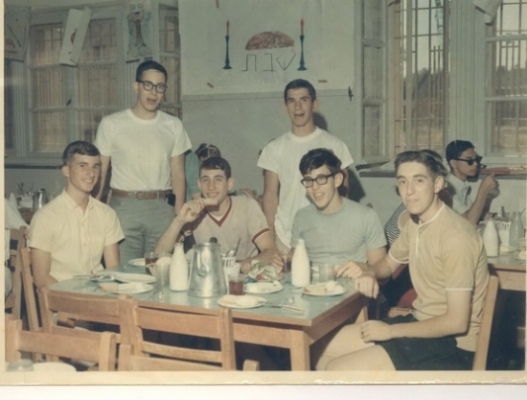My Aliyah Was Sparked in 1965
I had finished my first year at university and was working as a clerk in an advertising agency in Manhattan.
On June 5, 1967, my father woke me around 6am and told me he had heard on the news that Israel was at war. I spent a frustrating commute to NYC on the subway, trying to understand what was happening by reading the New York Times from cover to cover.
That morning I was not at all focused at work. During my lunch break I walked two miles uptown to the Israeli embassy to volunteer. The embassy was blocked off with barricades and policemen. I told someone that I wanted to volunteer, and I was asked if I was an Israeli citizen. I said no. I was then told that Americans could go and volunteer at the offices of the ZOA (Zionist Organization of America) on Lexington Avenue.
When I arrived, there was a line around the block. I waited patiently on line for an hour. The woman behind me was in her thirties and she was a non-Jewish nurse. When I got to the head of the line, I filled out an application form. I was asked if I had any military experience and I answered that I had been to a firing range several times where we fired a 22 rifle (maybe I had fired about 20 bullets). I knew that this was not very convincing so I told them I could drive a truck. (Actually, I had never driven a truck but I knew how to drive a stick-shift.) I was told that they would contact me.
I returned to work and told my non-Jewish boss that I was giving notice. I apologized and said that I probably would not be coming in tomorrow. She was dumbfounded, but said she understood. The other people in the office were also surprised.
Then I called my father at work. After I told him that I had signed up to go to Israel, there was a long silence. He said we would discuss it over dinner. I then called my mother at home. Another long silence. She, too, said we would discuss it.
When I got home, I greeted my mother and went upstairs to pack a suitcase. Dinner was very tense. My parents were both strongly against the idea, but I was adamant. I used the arguments that my brother had served as an officer in Korea in the United States Army and my uncles had all served in World War II. They knew that I had developed a strong connection to Israel after a summer tour in 1965 with a group called Masada. I did not sleep well that night as I was expecting the phone to ring. It didn't.
For the rest of the week, I continued to go to work thinking that the phone would ring any minute. It didn't. I tried calling, but was politely told that they would call me. In the middle of July a packet came in the mail, offering me an opportunity to come and volunteer on a kibbutz. By that time, I had already taken a position as a counsellor at a day camp.
In 1968-69, as a result of the Six-Day War, I came to study at Tel Aviv University for my junior year abroad. That year had a profound impact on me. I remember comparing the views of Jerusalem that I had seen from behind the border with Jordan in 1965, with the opportunity to walk throughout the city in 1968.
During the Vietnam War, call-ups in the US were based on a lottery system. If you had a low number, the likelihood was that you would be drafted. In 1970, my lottery number was 27, which meant that I would probably be sent as a soldier to Vietnam. The idea did not appeal to me so I decided to enroll in rabbinical school, and spent my first year in Israel.
On Yom Kippur in 1973, I was serving as a rabbi at a student pulpit in Bloomsburg, Pennsylvania. After the break, a congregant came in and said that Israel had been attacked. I was in shock, but at that time I was a rabbinical student and married, so the thought of volunteering was out of the question. My wife and I had spent the summer of 1973 in Israel as counselors (madrichim) for Ramah Seminar, so Israel felt even closer for both of us.
In June 1982 the First Lebanon War began. I was teaching when my co-teacher and our counselor were both called up, and I had to take over their responsibilities. I had come on aliyah in 1980, and as a father with two small children I had yet to be called up as a second stage (shalav bet) soldier. When I finally did get called up, I did a month of basic training, and a week-long course to learn how to drive an armored personnel carrier. I spent my reserve duty being the armored troop vehicle driver for the commander of an artillery unit.
During the summer of the Second Lebanon War in 2006, I was the rabbi of the Great Synagogue in Stockholm, Sweden. I had already been released from reserve duty in the Israeli army many years earlier, but I felt such emptiness at not being able to be in Israel. I streamed the news from my computer to my TV screen in my apartment. My children were already out of the IDF so I did not have a personal worry, but I did have a national worry.
The flame for my aliyah was kindled in 1965. In 1967, it heightened and then waned. After 1968-1969, it was only a question of "when". That "when" came in July of 1980








Comments